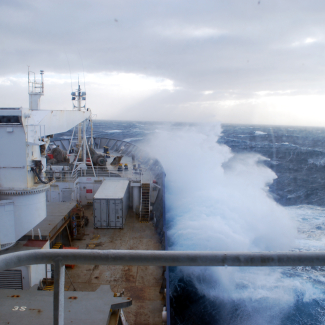
Entrepreneurship
It is in laboratories, where basic research is carried out, that the spark of innovation begins. These discoveries are the source of major innovations and are made in all fields from molecular biology through IT and particle physics to sociology, and so forth. This research is based on a long-term perspective and pushes the boundaries of knowledge, paving the way for major changes in our societies. These discoveries are vectors of innovation and transform our day to day lives.
The CNRS occupies an important position in the field of innovation as it manages a number of customised support programmes for researchers who wish to capitalise on their work.
Tailored support
The CNRS plays a crucial role in all stages of the process of transforming a scientific project into a tangible technological or societal advance by providing support that is tailored for researchers.
Pre-maturation
The purpose of the CNRS pre-maturation programme is to identify and financially support research projects that offer the most promising innovations developed in the 1100 CNRS-supervised laboratories.
This is the first stage in the process of transferring a technology to the market. Work carried out in pre-maturation can also validate a proof of concept, optimise a technology for a specific application, and establish or strengthen an intellectual property strategy.
Focus on Technology transfer companies (SATTs)
Following pre-maturation, the best projects move into the maturation phase, an additional step that enables a scientific result to be reliably secured in the target applications. This is managed by one of 13 SATTs, in which the CNRS holds a financial stake. Each SATT is a reliable local stakeholder able to access the skills and inventions of scientists in their region. They identify, assess, protect and drive these inventions to market by entrusting them to an existing company or a future start-up.
Creating start-ups
The CNRS’s RISE programme offers methodological support to researcher-entrepreneurs including those who are deep tech start-up project leaders. The programme's role is to capitalise on the technologies developed in the 1100 CNRS laboratories, from the initial idea through structuring to creation and the first phases of funding.
2023 Review of the RISE Program, pdf (au format pdf)
RISE UP Program Presentation Brochure, pdf (au format pdf)
Focus on the RISE+ programme
Through the RISE + programme (in French), the CNRS has strengthened its support for start-ups by connecting with six specialist start-up studios, an approach that aims to overcome the challenges of launching and growing companies that are specific entrepreneurship.
Six start-up studios are currently partners in this collaboration:
- 4Elements, a specialist in projects with a strong environmental impact in the transport, agriculture, energy and construction sectors; Home Biosciences, a specialist in new medicines and treatments; M2Care focuses on health and nutrition technologies; MedXCell works on gene therapies and cell therapies; Quantum Launchpad is focused on quantum technologies; Technofounders operates mainly in the industrial sectors such as agriculture, green chemistry and materials.
“By drawing on the backing of our partner start-up studios, we aim to support the technologies that begin in laboratories under our supervisory authority to take them even further on their journeys. The trajectory of every start-up is unique and depends on a large number of factors, especially those related to the specific features of the sector of operation; this means it is essential for us to surround ourselves with a network of partners with proven strong sector-specific expertise”, stresses Jean-Luc Moullet, CNRS Deputy CEO for Innovation.
Services for companies linked to the CNRS
The CNRS remains linked to the companies whose operations began in laboratories under its supervision by offering assistance through specific services. The Rise Up programme offers a range of services to help forge new links with other CNRS laboratories, consolidate intellectual property, recruit new talent, interact with other entrepreneurs or simply gain visibility.
“Around a hundred companies are founded every year from the laboratories we supervise. Rise Up is a chance to celebrate them as members of the CNRS family, which grows a little bigger every year, and to offer assistance through added value services”, explains Mehdi Gmar, director of CNRS Innovation.
Examples of companies originating from CNRS supervised laboratories:
EUROFINS SCIENTIFIC
AMPLITUDE SYSTEMES
HEMARINA
BULANE
COSMO TECH
DAMAE MEDICAL
TIAMAT
HEPHIA
ION-X
CILKOA
WELINQ
Photo Credit: © Frédérique PLAS / THRUSTME / CNRS Images

